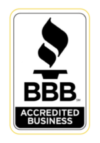What Gifting Strategies Are Available to Me?
There are a number of different gifting strategies available for planned giving. Each has its advantages and disadvantages.
Instead of making an outright gift, you could choose to use a charitable lead trust. With a charitable lead trust, your gift is placed in a trust. The recipient of the gift draws the income from this trust. Upon your death, your heirs will receive the principal with little or no estate tax.
If you prefer to retain an income interest in your gift, you could use a pooled income fund, a charitable remainder unitrust, or a charitable remainder annuity trust. With each of these strategies, you receive the income generated by your gift, and the recipient receives the principal upon your death.
Finally, you could purchase a life insurance policy and name the charitable organization as the owner and beneficiary of the policy. This would enable you to make a large future gift at a potentially low current cost.
The cost and availability of life insurance depend on factors such as age, health, and the type and amount of insurance purchased. Before implementing a strategy involving life insurance, it would be prudent to make sure that you are insurable.
As with most financial decisions, there are expenses associated with the purchase of life insurance. Policies commonly have contract limitations, fees, and charges, which can include mortality and expense charges. Most have surrender charges that are assessed during the early years of the contract if the contract owner surrenders the policy; plus, there could be income tax implications. Any guarantees are contingent on the financial strength and claims-paying ability of the issuing company. Life insurance is not guaranteed by the FDIC or any other government agency; they are not deposits of, nor are they guaranteed or endorsed by, any bank or savings association.
|
Advantages |
Disadvantages |
|
| Outright Gift | Deductible for income taxes | No retained interest |
| Charitable Lead Trust | A current gift to charity
Current income tax deduction Pass assets to heirs at a future discount |
Transfer of assets is irrevocable
If current income tax deduction is taken, future income is taxable to donor Donor gives up use of income for life of the trust |
| Pooled Income Fund | Current income tax deduction
Income paid to beneficiary for life Non-income-producing assets can be converted to income-producing assets |
Income is unpredictable from year to year
Income received is taxed as ordinary income Remainder interest will usually go to only one charity |
| Charitable Remainder Unitrust | Current income tax deduction
Avoids capital gains tax on appreciated property Reduce future estate taxes |
Transfer of assets is irrevocable
Qualified appraisal generally required Complex administration and setup Distributions to noncharitable beneficiaries are generally subject to income tax |
| Charitable Remainder Annuity Trust | Current income tax deduction
Avoids capital gains tax on appreciated property Fixed income |
Fixed payment cannot be limited to the net amount of trust income
Qualified appraisal generally required Complex administration and setup Distributions to noncharitable beneficiaries are generally subject to income tax |
| Gifts of Insurance | Current income tax deduction possible
Enables donor to make a large future gift at small cost in the future |
May require annual premiums
In some cases the death benefit could be part of donor’s taxable estate |
While trusts offer numerous advantages, they incur upfront costs and ongoing administrative fees. The use of trusts involves a complex web of tax rules and regulations. You might consider enlisting the counsel of an experienced estate planning professional and your legal and tax professionals before implementing such strategies.




